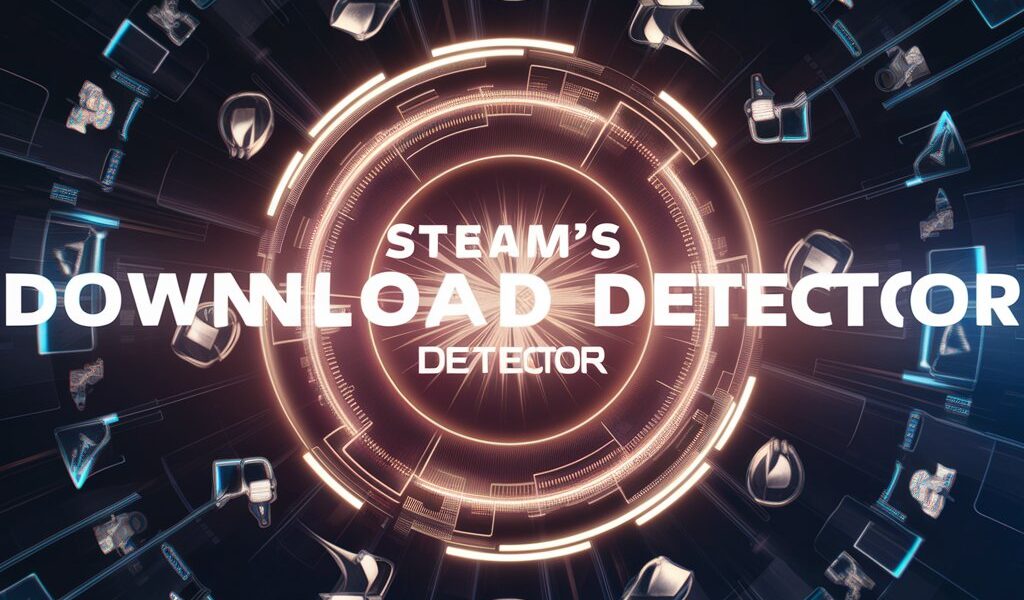In the fast-paced world of online gaming, few things are as frustrating as a sudden service interruption. Whether you’re in the middle of an epic battle or trying to connect with friends for a night of fun, it can feel like everything comes crashing down when Steam goes offline. Thankfully, there’s a tool that can help gamers navigate these turbulent waters: Downdetector. This platform offers real-time insights into service outages, allowing users to stay informed and connected even when the unexpected happens. If you’re curious about how Downdetector tracks Steam outages and what common issues arise, you’re in the right place! Let’s dive deeper into this vital resource for gamers everywhere.
Downdetector Tracks Steam Outages
Downdetector has become a go-to resource for gamers experiencing issues with Steam. This platform monitors real-time outages by collecting user reports from around the globe.
When players encounter problems, they often rush to Downdetector to share their experiences. This creates a dynamic feedback loop that helps everyone stay informed about service disruptions.
The site employs an interactive map and graphs that visually represent outage trends. Users can quickly identify whether others are facing similar challenges or if it’s just on their end.
By analyzing data from multiple sources, Downdetector offers insights into the scale of an outage. It transforms anecdotal reports into valuable information for users navigating frustrating gaming sessions. The community-driven aspect enhances its credibility and effectiveness in tracking Steam’s operational status.
Common Steam Issues Reported on downdetector
Users frequently report a variety of issues with Steam on Downdetector. Among the most common complaints are login problems, where gamers struggle to access their accounts.
Another prevalent issue involves connectivity. Players often experience disruptions while trying to connect to the Steam servers, leading to frustrating gameplay interruptions.
Game updates can also cause chaos. Many users note that downloading or installing updates sometimes fails entirely or takes excessively long.
Additionally, players report troubles with purchasing and accessing games from the store. These issues can hinder not just gaming enjoyment but also transactions.
Server outages during peak hours consistently draw attention on Downdetector, as they leave many unable to play their favorite titles when they want to.
The Importance of User Reports on downdetector
User reports play a crucial role in the functionality of Downdetector. They provide real-time feedback about issues users encounter while using Steam. This community-driven data creates an accurate picture of outages and disruptions.
When players report problems, they help identify patterns that may not be visible through official channels alone. Their input can highlight specific regions experiencing difficulties or particular features that are malfunctioning.
Moreover, user reports foster a sense of community among gamers. People often share their experiences and solutions, enhancing collective knowledge. Instead of feeling isolated during outages, players find camaraderie online.
The immediacy of these reports also allows for quicker responses from support teams at Steam. When enough users flag an issue on Downdetector, it signals to the company that action is needed swiftly. Thus, user involvement directly impacts service reliability and improvement efforts.
Comparing Steam’s Official Status Page vs. downdetector
Steam’s official status page serves as a primary source for users seeking updates on server performance. It provides real-time information about service health, game availability, and maintenance schedules. While it aims to keep players informed, the data can sometimes feel delayed or too general.
On the other hand, Downdetector pulls user-generated reports from various sources. This platform offers a more grassroots perspective on outages and issues affecting Steam services. Players often turn to this tool during unexpected disruptions.
Comparing both resources reveals distinct strengths. The official status page is reliable but may lack immediate community feedback. Meanwhile, Downdetector thrives on rapid reporting by gamers themselves, creating an interactive experience that highlights real-time problems in detail. Each resource complements the other and helps users navigate their gaming frustrations effectively.
Tips for Using Downdetector Effectively
When using Downdetector for monitoring Steam outages, start by familiarizing yourself with the layout. The platform is user-friendly, making it easy to navigate through reports and trends.
Keep an eye on real-time outage maps to see if issues are localized or widespread. This can give you a clearer picture of what’s happening in your area versus globally.
Engage with the community section to gather insights from other users. Their experiences can provide valuable context around ongoing problems.
Make use of historical data available on Downdetector. Understanding past outages helps anticipate future ones and gauge how long disruptions might last.
Consider setting up notifications for updates related to Steam outages. Staying informed ensures you’re one step ahead when connectivity issues arise.
Historical Trends: Major Steam Outages Detected
Historical data on downdetector steam outages reveals intriguing patterns. Users often report issues during peak gaming times, particularly weekends and holidays. The spikes in reports indicate a direct correlation between user activity and server strain.
Notable outages have occurred around major game launches or updates. These events can lead to sudden surges in traffic that overwhelm the servers, causing disruptions for gamers eager to dive into their favorite titles.
In 2020, a significant outage affected thousands of players globally for several hours. Gamers took to social media platforms, sharing their experiences and frustrations while monitoring downdetector for real-time updates.
The analysis of these historical trends helps users anticipate potential issues based on past occurrences. Recognizing when Steam is likely to experience stress allows players to adjust their gaming schedules accordingly.
Community Impact :downdetector Steam
The influence of Downdetector on the gaming community is profound. When Steam goes down, gamers turn to this platform for real-time updates and support. It creates a collective space where users share their experiences.
This interaction fosters a sense of community. Players can express frustrations, share downtime stories, or even find humor in the situation. The shared experience brings people together during frustrating moments.
Moreover, user-generated reports enhance transparency around outages. Gamers feel empowered knowing they’re not alone in facing issues with Steam services.
Additionally, it encourages developers to address problems more swiftly by spotlighting trends and recurring outages reported by users. This feedback loop leads to improved service reliability over time.
Downdetector serves as a vital resource that connects individuals while navigating challenges within the gaming ecosystem.
Conclusion:
Downdetector has become an essential tool for gamers navigating the unpredictable world of Steam outages. By tapping into user-generated data, it provides real-time insights that can alleviate frustrations during downtime.
The platform’s community-driven approach fosters a sense of solidarity among users. When issues arise, knowing others are experiencing similar problems offers a degree of comfort.
Understanding how to leverage Downdetector effectively can significantly enhance your gaming experience. It empowers players by equipping them with timely information and allows for better planning around game time.
As gaming becomes increasingly interconnected, tools like Downdetector will undoubtedly play a crucial role in enhancing communication within the community. The evolving landscape of online gaming calls for resources that keep players informed and engaged, making platforms like this invaluable in today’s digital age.
FAQs
What is Downdetector?
Downdetector is a platform that tracks service outages across various online services, including popular gaming platforms like Steam. It allows users to report issues and view real-time outage maps.
How does Downdetector work for Steam outages?
Users can submit their experiences with any disruptions they encounter while using Steam. This data helps create a live overview of the current status of the platform, showing where problems arise and how widespread they are.
Can I rely solely on Downdetector for information about Steam outages?
While Downdetector provides valuable insights from user reports, it’s always good to cross-check this information with official sources. Combining both will give you a clearer picture of the situation.
What types of issues are commonly reported on Downdetector regarding Steam?
Common issues include login failures, server downtime, connection problems, and game update errors. These reports help identify patterns in disruptions users face.
Is there an app available for tracking steam outages via downdetector?
Yes! There’s a mobile app that makes it easy to monitor service status on-the-go. You can receive alerts directly to your device when issues arise.
ABOUT US:https://proteomics.uk/




